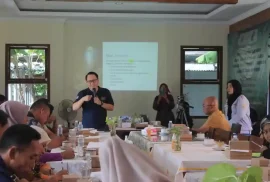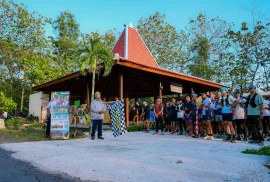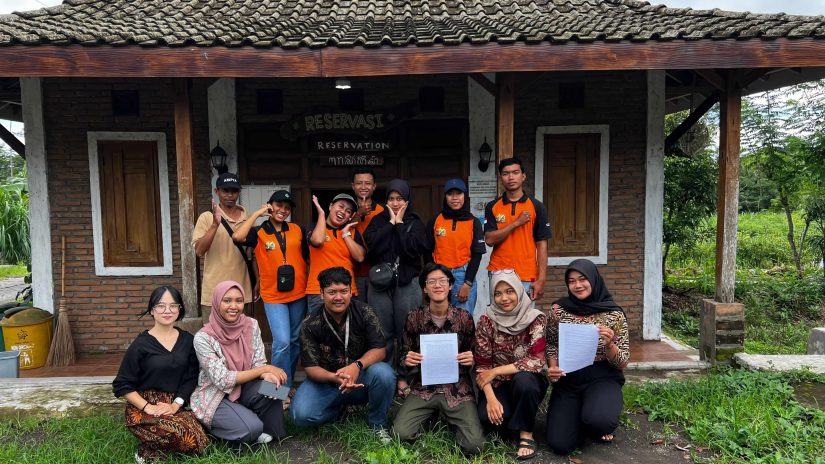
Photo Description: UGM Undergraduate Tourism Students with Local Guides from Pancoh Ecotourism Village
Through the Community-Based Tourism course, undergraduate students from the Tourism Study Program at Universitas Gadjah Mada (UGM) are sent directly into the field to understand the dynamics and challenges of managing a tourism village. One of the selected villages for this field study is Pancoh Ecotourism Village, located in Girikerto Village, Turi Subdistrict, Sleman Regency, Yogyakarta Special Region. Pancoh utilizes its natural, economic, and cultural potential in providing tourism attractions, such as river trekking, rice planting, plowing fields, and fish catching for nature tourism; gamelan, batik-making, traditional rice rituals, and communal feasts for cultural tourism; and salak and rice cultivation, fish farming, caping (traditional hat) crafting, salak processing, and waste management for educational tourism.
In this program, seven students—Muttakina Jihan Azizah, Jasminda Tsurayya Khansa, Kurnia Puspa Dewi, Muhammad Thoriq Aziz, Muhammad Razzaka, Delicia Alfonia, and Faishal Dzaki—were assigned to gather information and identify solutions for the issues faced by Pancoh Ecotourism Village. The project began with a participatory interview with Mr. Ngatijan, the village advisor, to identify urgent issues. One prominent issue was the disrespectful behavior of some tourists toward the tour guides. Interviews with the guides confirmed incidents involving vulgar jokes, excessive physical contact, and emotional aggression by tourists. Such behavior negatively impacts the guides’ confidence and performance and can pose serious threats to their physical and mental well-being. Thus, it is essential to develop policies to address tourist misconduct as a means of protecting workers and ensuring a safe space.
Guided by Dr. Tular Sudarmadi, M.A. and Hannif Andy Al Anshori, S.Par, the students developed policies to address such misconduct. The outcome included a Standard Operating Procedure (SOP) and a Code of Ethics, finalized during a Focus Group Discussion (FGD) with the tour guides on Sunday, December 1, 2024. The SOP was designed for prevention and handling of disrespectful tourist behavior and includes definitions, preventive measures, complaint procedures, delegation of responsibilities, effective date, evaluation plans, and approval clauses. It also offers verbal strategies for guides to assertively and politely address inappropriate tourist behavior. Meanwhile, the Code of Ethics serves as a guideline for visitors, outlining reservation policies, respect for local culture, courteous conduct, safety reminders, and support for the local economy.
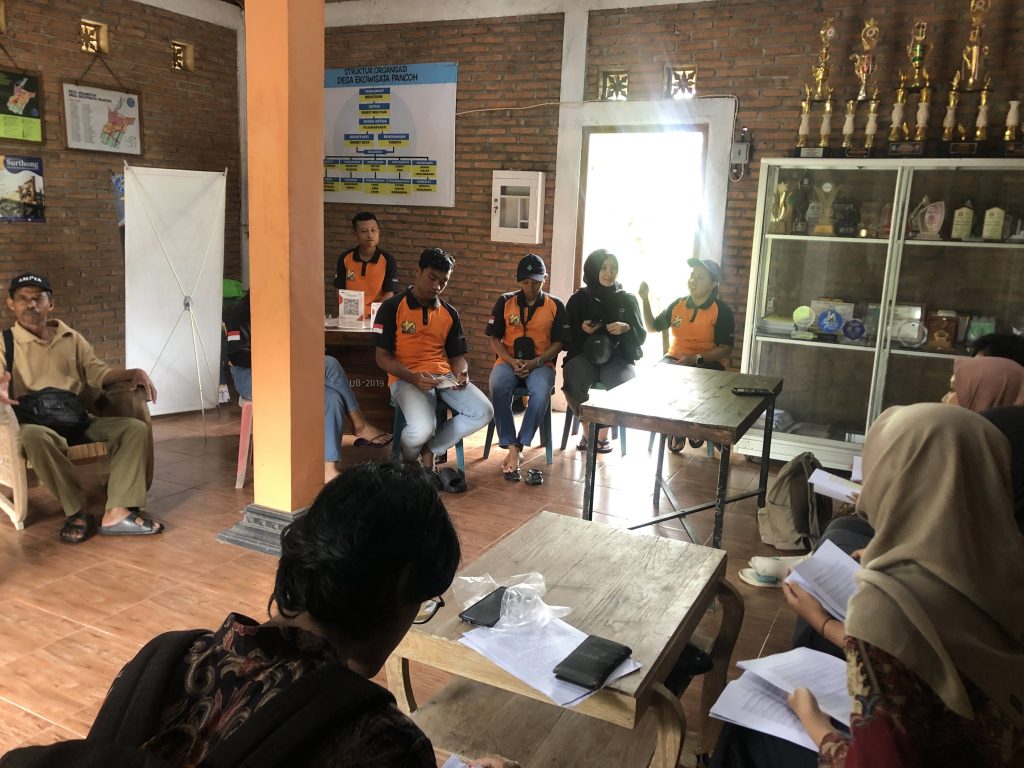
Photo Description: FGD on SOP and Code of Ethics, December 1, 2024
The entire project was developed with active community participation. This approach ensured the relevance of the proposed solutions while fostering a sense of ownership over the newly developed policies. Mr. Ngatijan and the local guides responded positively, actively participating in the discussions. Mr. Ngatijan appreciated the final products, stating that the SOP and Code of Ethics met the village’s actual needs.
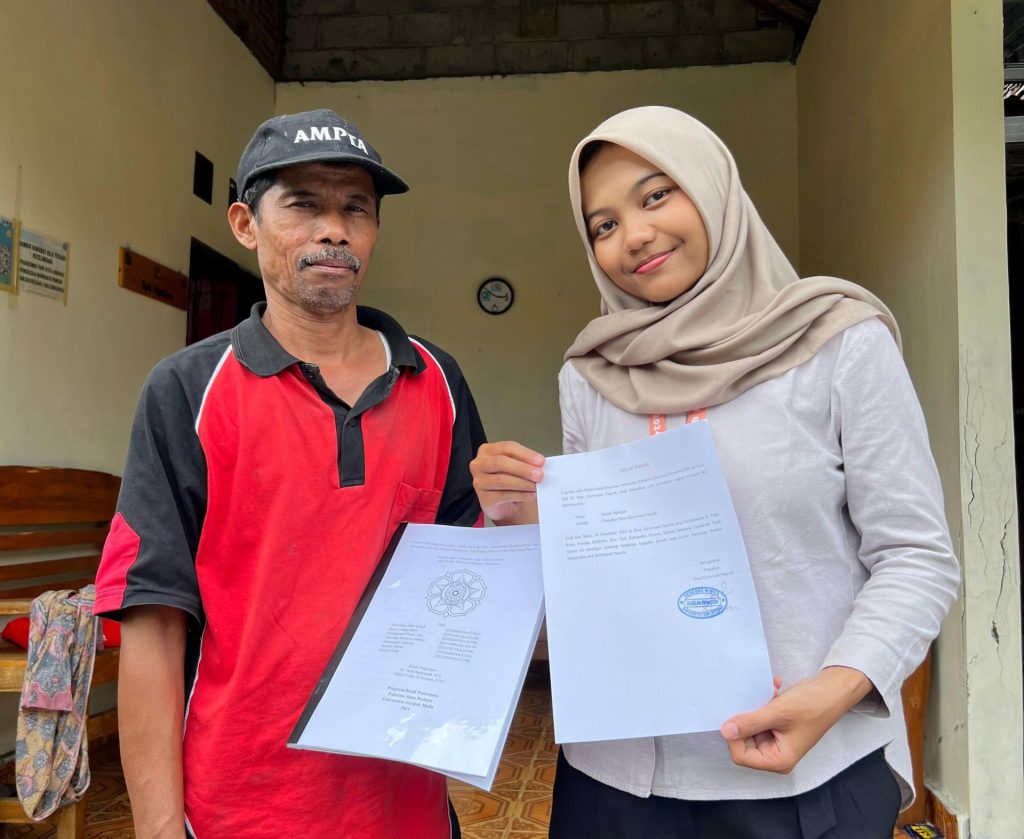
Photo Description: Handover of Project Outcomes for the Community-Based Tourism Course
It is hoped that this project will not only enhance safety and comfort in Pancoh Ecotourism Village but also serve as a model for other tourism villages to create ethical, inclusive environments that prioritize community well-being.
Article by: Muttakina Jihan Azizah
Photo Source: Muttakina Jihan Azizah
Group 4 Members:
-
Muttakina Jihan Azizah
-
Kurnia Puspa Dewi
-
Muhammad Thoriq Aziz
-
Jasminda Tsurayya Khansa
-
Muhammad Razzaka
-
Delicia Alfonia
-
Faishal Dzaki
Lecturers: Dr. Tular Sudarmadi, M.A. and Hannif Andy Al Anshori, S.Par



